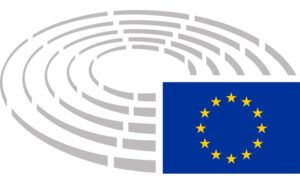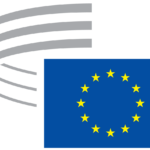Access to the official webpage and the social networks
 |
 |
 |
 |
Role: Directly-elected EU body with legislative, supervisory, and budgetary responsibilities
Members: 720 MEPs (Members of the European Parliament)
President: Roberta Metsola
Year established: 1952 as Common Assembly of the European Coal and Steel Community, 1962 as European Parliament, first direct elections in 1979
Location: Strasbourg (France), Brussels (Belgium), Luxembourg
The European Parliament is the EU’s law-making body. It is directly elected by EU voters every 5 years. The last elections were in May 2019.
What does the Parliament do?
The Parliament has 3 main roles:
Legislative
- Passing EU laws, together with the Council of the EU, based on European Commission proposals
- Deciding on international agreements
- Deciding on enlargements
- Reviewing the Commission’s work programme and asking it to propose legislation
Supervisory
- Democratic scrutiny of all EU institutions
- Electing the Commission President and approving the Commission as a body. Possibility of voting a motion of censure, obliging the Commission to resign
- Granting discharge, i.e. approving the way EU budgets have been spent
- Examining citizens’ petitions and setting up inquiries
- Discussing monetary policy with the European Central Bank
- Questioning Commission and Council
- Election observations
Budgetary
- Establishing the EU budget, together with the Council
- Approving the EU’s long-term budget, the “Multiannual Financial Framework”
Composition
The number of MEPs for each country is roughly proportionate to its population, but this is by degressive proportionality: no country can have fewer than 6 or more than 96 MEPs and the total number cannot exceed 705 (704 plus the President). MEPs are grouped by political affiliation, not by nationality.
The President represents Parliament to other EU institutions and the outside world and gives the final go-ahead to the EU budget.
What does the Parliament do?
The Parliament has 3 main roles:
Legislative
- Passing EU laws, together with the Council of the EU, based on European Commission proposals
- Deciding on international agreements
- Deciding on enlargements
- Reviewing the Commission’s work programme and asking it to propose legislation
Supervisory
- Democratic scrutiny of all EU institutions
- Electing the Commission President and approving the Commission as a body. Possibility of voting a motion of censure, obliging the Commission to resign
- Granting discharge, i.e. approving the way EU budgets have been spent
- Examining citizens’ petitions and setting up inquiries
- Discussing monetary policy with the European Central Bank
- Questioning Commission and Council
- Election observations
Budgetary
- Establishing the EU budget, together with the Council
- Approving the EU’s long-term budget, the “Multiannual Financial Framework”
Composition
The number of MEPs for each country is roughly proportionate to its population, but this is by degressive proportionality: no country can have fewer than 6 or more than 96 MEPs and the total number cannot exceed 705 (704 plus the President). MEPs are grouped by political affiliation, not by nationality.
The President represents Parliament to other EU institutions and the outside world and gives the final go-ahead to the EU budget.
How does the Parliament work?
Parliament’s work comprises two main stages:
- Committees – to prepare legislation.
The Parliament numbers 20 committees and three subcommittees, each handling a particular policy area. The committees examine proposals for legislation, and MEPs and political groups can put forward amendments or propose to reject a bill. These issues are also debated within the political groups.
- Plenary sessions – to pass legislation.
This is when all the MEPs gather in the chamber to give a final vote on the proposed legislation and the proposed amendments. Normally held in Strasbourg for four days a month, but sometimes there are additional sessions in Brussels.







Leave a Reply